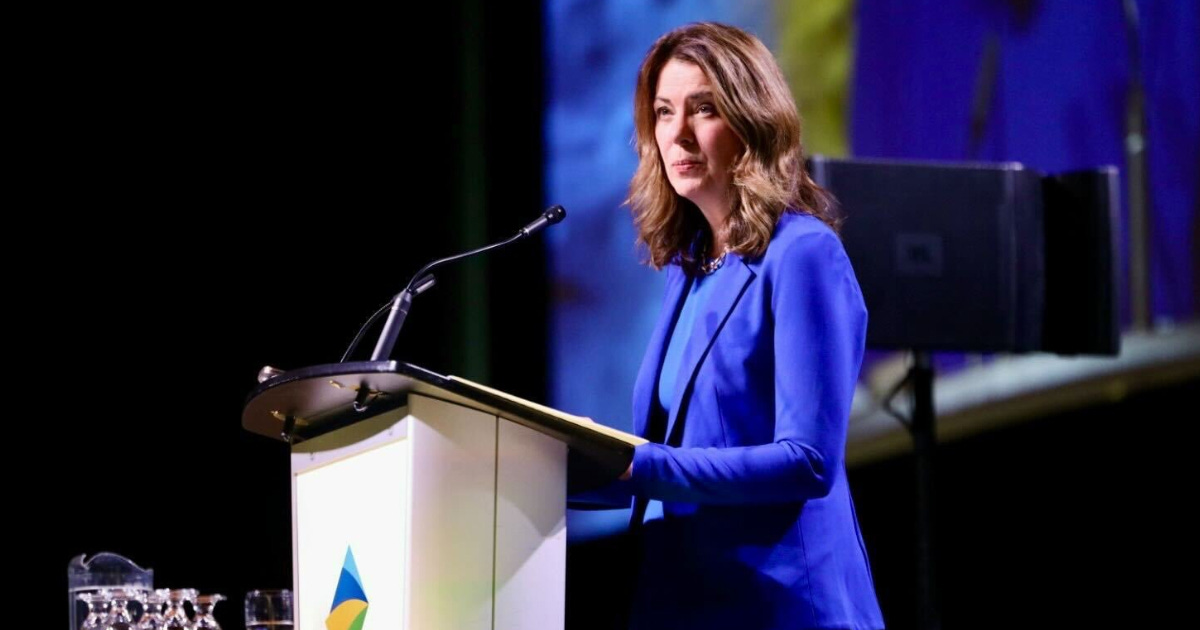Liberal MPs throw cold water on new West Coast pipeline as deal with Carney reportedly being sought
Liberal MPs are tempering Alberta Premier Danielle Smith’s push for a new West Coast oil pipeline just as a memorandum of understanding is being worked on.
Liberal MPs are tempering Alberta Premier Danielle Smith’s push for a new West Coast oil pipeline just as a memorandum of understanding is being worked on, insisting that approval from British Columbia and substantial First Nations support is mandatory.
This familiar hurdle complicates Smith’s efforts to reach an agreement with Prime Minister Mark Carney on a project critics repeatedly claim is defunct.
On Wednesday, Liberal MPs cautioned that any deal between Ottawa and Alberta to build a new oil pipeline to British Columbia’s coast must have the province’s approval and significant First Nations support as the premier seeks an agreement with Prime Minister Mark Carney.
The Globe and Mail first reported that Ottawa and Alberta are negotiating a memorandum of understanding that could include a new pipeline to British Columbia’s northwest coast, limited exemptions to the tanker ban, and changes to industrial carbon pricing and the federal emissions cap.
Canadian Identity Minister Steven Guilbeault said B.C.’s approval remains a prerequisite for any project.
The Globe reported him saying that “if it were to go to the West Coast, British Columbia would have to agree.”
Jonathan Wilkinson, a B.C. Liberal MP and former natural resources and environment minister, also cautioned that loosening the moratorium could harm relationships with Indigenous partners backing liquefied natural gas (LNG) developments.
As reported by the Toronto Star, Wilkinson said, “Much of the support for the LNG facilities that are going there relies on the support of coastal First Nations,” adding that “there’s a risk” if Ottawa moves to partially lift the ban.
In comments reported by Business in Vancouver, Wilkinson said changing the ban would require discussions with the B.C. government and coastal First Nations because “there needs to be significant support and at present I don’t think there is.”
However, B.C. Premier David Eby and First Nations leaders have vocalized their opposition to the pipeline, saying it’s off the table.
The Globe also reported Eby warning that relaxing the moratorium would “undermine” support that First Nations and coastal communities currently give to other resource projects in the province.
Karina Gould, a former cabinet minister and prominent Liberal MP, emphasized that the tanker ban reflected long-standing public support.
According to the National Post, Gould said the policy responded to “huge public demand” and warned the debate would be “a contentious one.”
While speaking outside the House of Commons, Gould said she was always against a pipeline “going through that part of the world,” but supported Keystone XL, adding that “we already have a pipeline going from Alberta to British Columbia.”
The existing Trans Mountain line terminates in Burnaby and is unaffected by the north coast tanker ban. It does not reach the northwest ports under discussion, which is why Alberta continues to seek a second West Coast route aimed at Asian export capacity.
Taleeb Noormohamed, chair of the B.C. Liberal caucus, said federal MPs from the province continue to expect both Indigenous and provincial consent.
“We’ve made it very clear what our position is going to be,” he told the National Post.
Alberta Premier Danielle Smith, meanwhile, cast the negotiations as a test of national unity and Alberta’s treatment within the federation.
“We are working on an MOU that deals with, comprehensively, the issue of getting more bitumen to Asian markets, the pathways project… as well as the nine bad laws that are impairing our investment climate,” she told reporters on Monday.
Smith said she pressed Prime Minister Mark Carney directly.
“We need to show Albertans that the country works again… that their product isn’t landlocked and that there aren’t unfair rules that are preventing investment,” she said.
She added that Ottawa MPs will have to reverse past positions if the agreement is to succeed.
“There are certain members of his caucus and cabinet who are going to have to come to terms with doing a 180 on some of the bad laws that they supported and voted for over the past ten years,” said Smith. “That’s what the last election was about. It was about the Liberal Party realizing they’d made an error, and they needed to start talking about becoming a strong economy that’s an energy superpower.”
When speaking on Monday, Smith said she’d know within a matter of days whether these members of caucus were influential enough to change the direction that she and Prime Minister Mark Carney want to go.
None of the Liberal MPs directly opposed the proposed Alberta–Ottawa deal, but each stressed that the federal government will not act without British Columbia’s approval and significant First Nations support.




And there it is again. The Elbows Up Regime plays its " consensus " card thereby having to avoid making a decision in this farce called " Team Canada ".
"Smith said she’d know within a matter of days" She is on borrowed time. The dead line has come and gone, Gray Cup Day. Even if possible, a MOU is not enough, it does not address the real problems, it may not even correct the attacks on Alberta from ottawa in the last few years.
It is time to move forward, we need a vote on Independence.